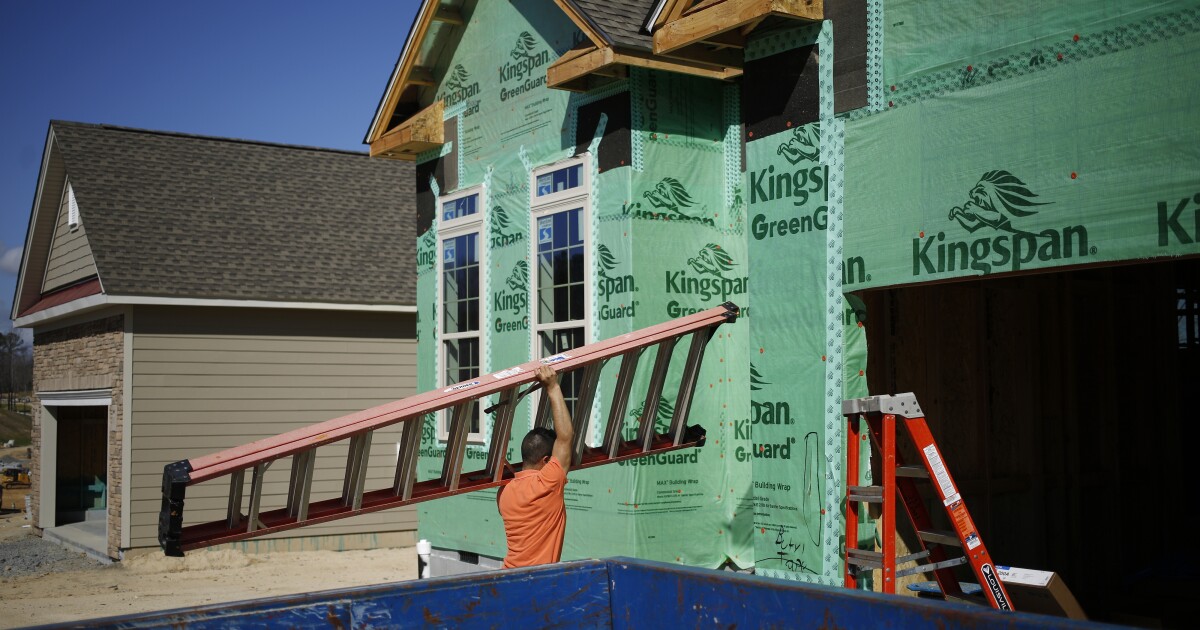
The ongoing tariff-impacted rise of material and service prices, alongside challenging credit conditions, are a double whammy hitting residential construction, according to analysis from the National Association of Home Builders.
Prices for goods and services used in residential construction came in 2.8% higher in July on an annual basis, marking the largest increase in two years,
On a monthly basis, the
While tariff costs aren't directly accounted for in the PPI, which only factors in domestically produced goods, an indirect effect would show up when they are passed on and lead to price adjustments, NAHB researchers said.
"Announced tariffs in recent months have resulted in material increases across a few different goods, specifically certain metal products and equipment," wrote Jesse Wade, NAHB's director of tax and trade policy analysis, in a research post.
Among individual products, parts for construction machinery, and metal molding and trim saw prices spike with the former increasing 31.4% and the latter 25.6% in the last 12 months following the imposition of
Of the two components in NAHB's analysis, input goods, which account for approximately 60% of NAHB's residential construction index, climbed up 2.4% year over year. Services, such as trade, transportation and warehouse facilities that make up the remaining 40%, accelerated 3.3% year over year.
On a monthly basis, input goods, including energy, rose 0.4%, while services decreased 0.2%.
Credit conditions for builders continue a troubling pattern
The latest PPI data comes at the same time the association reported credit conditions for commercial lending to builders tightened for a fourteenth straight quarter.
In a separate NAHB index covering credit availability for land acquisition, development and construction, the reading dropped to a score of -12.3, with negative values indicative of quarterly tightening.
NAHB members who saw tighter credit reported reduced lending amounts, which was cited by 60% of those affected. More than half, or 53%, said lenders had required personal guarantees, while 47% noted they increased interest rates or offered no financing whatsoever.
While credit tightening trends over the past year have been "relatively modest", the cumulative effect may prove more onerous.
"After 14 straight quarters of tightening, many builders are probably wondering how much room lenders have left to tighten further," wrote Paul Emrath, president for survey and housing policy research.
Negative builder sentiment persists
Pressures arising from an
In July, the index showed minimal improvement to come in at a score of 33, as 38% of respondents resorted to price cuts that month.
The score was up one point from June's reading of 32. Set at a neutral benchmark of 50, values below that number indicate more pessimistic sentiment in near-term outlook for the industry. The index has been stuck in negative territory for 15 straight months, NAHB said.
The group's next homebuilder sentiment index release is scheduled for Aug. 18.



